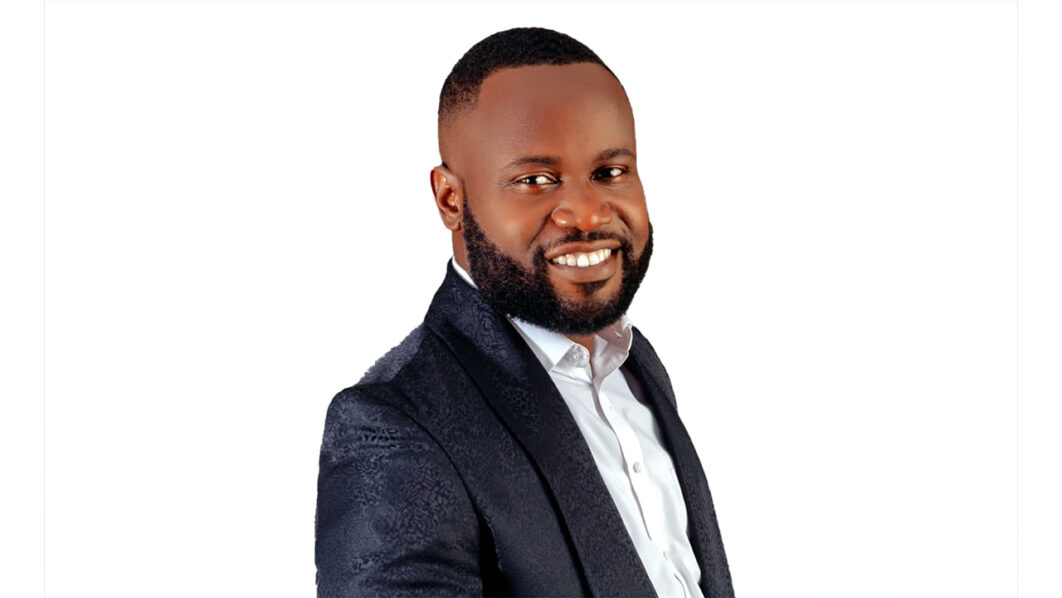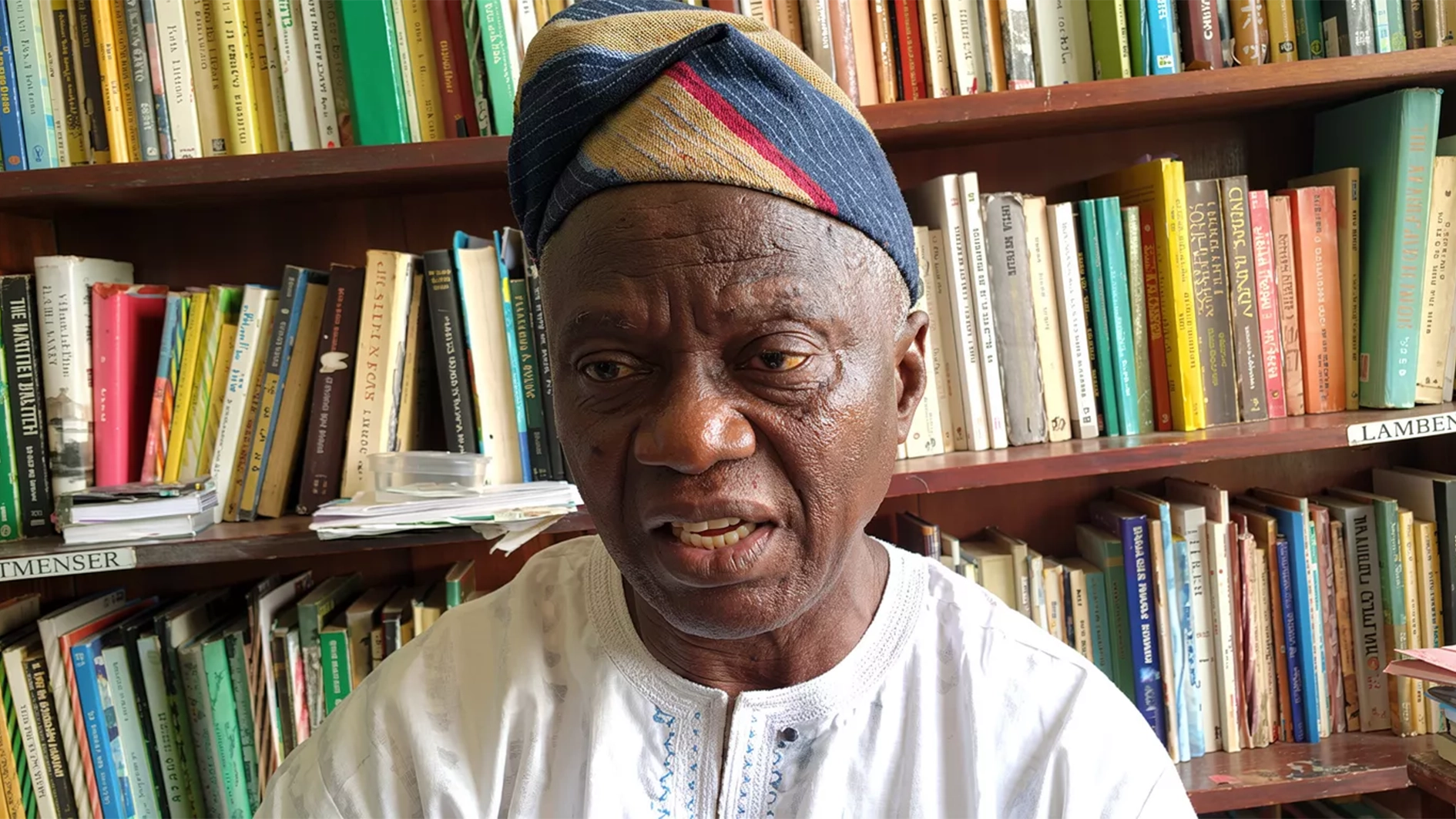
Gbenga Samuel is the Country Director for Maxwell Leadership Foundation in Nigeria. An alumnus of Obafemi Awolowo University, Ile-Ife, as well as Lagos Business School, he is a leadership coach committed to shaping Africa’s leadership landscape by empowering the next generation of leaders through value-based leadership training programmes. An author, he is a Maxwell Certified Leadership Coach and Trainer and organises a number of John Maxwell Leadership and Communication Certification courses for corporate organisations. In this interview with ONYEDIKA AGBEDO, he discusses the leadership challenge in the country, highlighting how the organisation has been contributing to the efforts to birth a new generation of leaders that will make Nigeria and Africa proud.
What is the iLead Leadership Programme about?
Culture at large is suffering from a lack of leadership, especially values-based, people-centric leadership. iLead is a value-based leadership programme designed for students and implemented by the Maxwell Leadership Foundation. iLead provides a foundation of values from which students are empowered to lead themselves and lead others in a way that can change the world for the better! The content is combined with a peer-to-peer methodology that allows students to practice leadership. Students are asked to take turns in facilitating weekly lessons that allow them to define the kind of leaders they want to be and choose the appropriate actions to allow them to become the best version of themselves.
iLead Nigeria has been passionate about bridging the leadership gap in the country by training young Nigerians, especially at the secondary school level. How would you measure the impact of the training so far? Is it bearing fruits at all?
Good values are essential for effective leadership, and this is true not just in Nigeria but around the world. Many leaders lack a strong foundation in values, which creates a leadership gap. To address this issue, the iLead Programme focuses on helping young students develop the right values early on. Through this programme, students learn about important concepts like making good choices, having a positive attitude, staying committed, being resilient, and practicing forgiveness.
The programme is already making a difference in students’ lives. For example, a student in Oshodi shared how she improved her grades after learning about commitment. She decided to focus more on her studies and even asked her parents for extra lessons. Stories like this show that investing in young people’s character and leadership skills is worthwhile. Currently, all SS2 students in Lagos Education District VI take part in the iLead Programme. While some positive changes are visible now, the full impact will be clearer in about 10 years. By then, these students will have a strong foundation in leadership and good character, which will benefit them and society as a whole.
At the iLead Leadership Conference in June this year, your organisation set the target to train one million secondary school students within the next three years. How is the number adding up?
We have a bold goal to deliver the iLead Values Programme to one million students in Nigeria, but that’s just a milestone. More students across the country need to benefit from this programme. Our scaling strategy involves collaborating with state Ministries of Education to include iLead in the curriculum. These values are essential for every child. The Lagos State government has shown leadership by adopting the programme for all SS2 students in Education District VI. By next year, we aim to extend it to other districts in the state. For this academic session, we have onboarded 41,415 students across various states in the country.
Who bears the cost of your training programmes, do the students pay or is it entirely pro bono?
The iLead Programme is a special opportunity for students to learn about leadership without any cost to them. This amazing programme is made possible by the generous support of the Maxwell Leadership Foundation and local partners who believe in helping young people grow. These kind organisations and individuals donate money and resources to make sure students can participate for free. They do this because they want to invest in the future leaders of our schools and communities. By offering the programme at no cost, iLead ensures that all students, regardless of their background, can access valuable leadership training.
How far have you gone with your plan to expand beyond Lagos and take the training to other states of the federation?
It is exciting to see the expansion of our programme in other states. In September, we began a pilot implementation in 16 schools in Osogbo, the capital of Osun State. The FCT Universal Education Board has approved the iLead Programme for all its schools, starting in January 2025. We have also received approval to launch the iLead Programme in government schools in Akwa Ibom next year. Selected schools in Oyo and Abia states are participating in the programme as well. We look forward to collaborating with other states to bring this transformational programme to their students. Additionally, we are partnering with the MTN Foundation through its Anti-Substance Abuse Programme (ASAP) to reach 28,500 students across 11 states in the country.
So, you are exploring partnership options to drive this change initiative?
Mother Teresa once said, “I can do what you cannot, and you can do what I cannot; together we can do great things.” We recognise that we cannot achieve our goal of transforming students across Nigeria alone. We continually seek partnership opportunities to scale faster and reach more beneficiaries. Currently, we collaborate with MTN Foundation, an organisation that has made a significant impact across various key sectors in Nigeria, including education. We also work with implementing partners supporting the programme in different states.
We need more corporate organisations to collaborate with us and invest in our nation’s future. For instance, Emsee Shipping Line Limited supported our student leadership conference and certification event this year.
Many people believe that the kind of leadership training organised by organisations like yours make very little impact because leadership values are imparted and imbibed overtime from the home. What roles do you think parents should play to groom a new set of young Nigerians ready to drive the right kind of change the citizens are desirous of?
Shaping future leaders is a task that requires everyone’s involvement, not just a select few. While schools play a crucial role in teaching students important values, families are equally important in this process. The home is where children first learn about life, picking up both good and bad habits from their parents. Even when students are taught positive values outside the home, they can easily forget them if their home life is unhealthy.
Unfortunately, the good lessons learned at school can be undone in a troubled home environment. This is why parents need to take responsibility for their children’s character development. By working together, schools and families can create a strong foundation for the next generation of leaders, ensuring that positive values are consistently reinforced both at home and in the classroom.
How do you think schools can include a programme like iLead in their curriculum?
The iLead programme offers a valuable approach to teaching values in schools through weekly group discussions. Students gather in their classrooms to explore important principles and ideas together. This method helps young people learn and embrace positive values in a supportive environment. Schools can easily use iLead as part of their curriculum, especially for Personal, Social, Health and Economic (PSHE) education.
By talking about values regularly, students can better understand how to apply them in their daily lives. The programme encourages open conversation and allows children to share their thoughts and experiences. This hands-on learning style can make difficult topics more accessible and engaging for students of all ages. Overall, iLead provides a practical and effective way for schools to promote character development and ethical behaviour among their students.
The iLead curriculum, designed to teach values and character, is not limited to government schools. Private schools can also use this programme to help shape their students’ character. One example is the Corona Schools Trust Council, which took part in the early testing of the iLead curriculum. They used it in four of their schools in Lagos State. This shows that both public and private schools can benefit from this values-based education. By using the iLead programme, schools can teach important life skills and values to their students. This approach can help create well-rounded individuals who are ready for the challenges of the future. The success of the programme in different types of schools proves its flexibility and usefulness in various educational settings.
Looking at Nigeria’s current crop of leaders across political, religious and traditional cadres, what leadership gaps do you notice from their actions?
Leadership is all about putting people first. True leaders understand that their main job is to serve others, not themselves. When leaders forget this and focus on other things instead of people, they stop being real leaders. Unfortunately, many leaders today pay more attention to things like money, power, or fame rather than the needs of those they lead. This is a big gap in leadership.
Good leaders always remember that their most important task is to help and support the people they work with. They listen to their team, care about their well-being, and work hard to help them grow and succeed. When leaders put people at the centre of everything they do, everyone benefits. The team becomes happier and more productive, and the whole organisation improves. So, if you want to be a great leader, always remember that it’s all about serving and caring for people.
What inspired your involvement in the iLead as Programmes Director for Nigeria?
Leadership has been a driving force in my life from an early age. As a student at Babington Macaulay Junior Seminary in Lagos, I took on the role of Chapel Prefect, which taught me valuable lessons about responsibility and leadership. This early experience sparked a passion for leadership development that has continued to grow. Years later, I feel honoured to work with students through the iLead Programme, sharing the knowledge and skills I’ve gained.
As a Certified Maxwell Team Coach and Speaker, I have mentored young people through various platforms and events in the last 15 years. A turning point came in 2022 when I attended the International Maxwell Conference in Orlando, USA. There, I heard John Maxwell speak about the iLead Programme and its positive impact worldwide. Inspired by his words, I made a commitment to bring this programme to Nigeria. Since then, I’ve dedicated myself to nurturing leadership skills in others, believing that strong leaders play a crucial role in national development.
I am also privileged to serve as the Sub-Regional Coordinator for EQUIP, overseeing the execution of its leadership programme, Beyond Success, across nine countries in West Africa. I’m excited to continue making a difference in people’s lives through leadership development initiatives.






